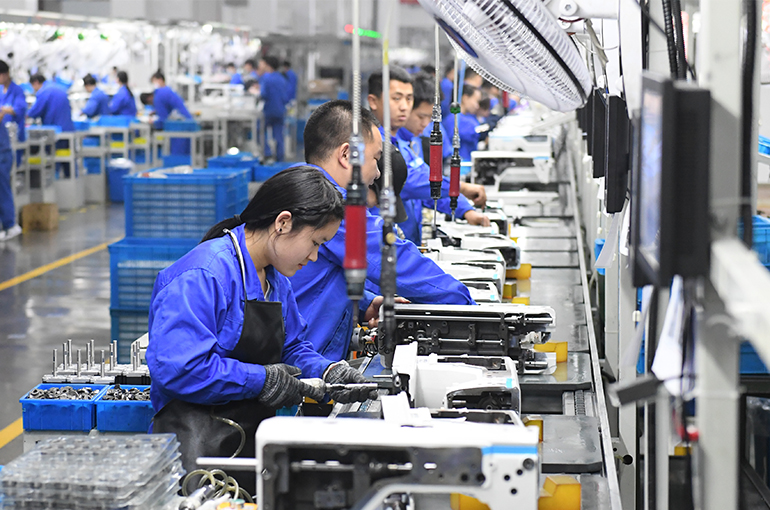 China's Official Manufacturing PMI Expands for Second Straight Month in November
China's Official Manufacturing PMI Expands for Second Straight Month in November(Yicai) Dec. 2 -- Factory activity among China’s manufacturers rebounded for the third consecutive month and remained in expansion territory for the second straight month last month as stimulus measures are starting to bear fruit.
The official purchasing managers' index climbed to 50.3, up from October's 50.1, according to the latest data from the National Bureau of Statistics. A reading above 50 indicates expansion, while one below signifies contraction.
The NBS gauge suggests more modest growth than the Caixin/S&P Global PMI which came in at 51.5 last month, up 1.2 points from October, marking the second straight month of expansion, according to the latest data from the private survey publisher.
Factory activity is improving after the central government introduced a major stimulus package in September, aiming to boost growth in the world's second-largest economy and revive the struggling property market.
The NBS sub-index for new orders in November reached 50.8, up 0.8 points from the previous month, marking the third straight month of recovery. The production sub-index increased 0.4 points to 52.4, also rising for the third consecutive month.
Last month saw positive economic changes, said Wen Tao, an expert at the China Logistics Information Center. The most gratifying development was the new order index rebounding to surpass the 50-point mark, Wen added.
The continued recovery of the PMI shows signs of an economic rebound after bottoming out, said Zhang Liqun, a special analyst of the China Federation of Logistics and Purchasing. Policies are increasingly boosting corporate confidence, and businesses' production and operation activities are recovering, he added.
Oversupply
However, Zhang noted that the decline in all price indexes indicates persistent oversupply. He emphasized the need to strengthen incremental policies, particularly by promoting corporate orders through government investment and enhancing the economy's momentum for a quicker recovery.
Evidently, input costs remained in contraction as the sub-index for raw material purchase prices came in at 49.8, down 3.6 points, and that for ex-factory prices dropped by 2.2 points to 47.7. However, the production and operation expectation index — a gauge of business sentiment — rose 0.7 points to 54.7, marking the second consecutive month of improvement.
November's non-manufacturing PMI, which includes construction and services, declined to the critical point of 50, down 0.2 points from the previous month. Specifically, the construction industry's business activity index fell 0.7 points to 49.7 percent, while that for the services industry remained unchanged at 50.1 percent.
The composite PMI, which includes both manufacturing and services activity, stood at 50.8, unchanged from the previous month, indicating stable expansion.
Editor: Emmi Laine